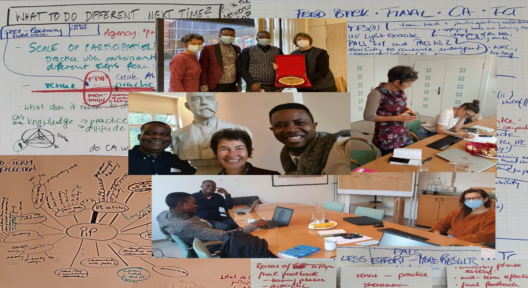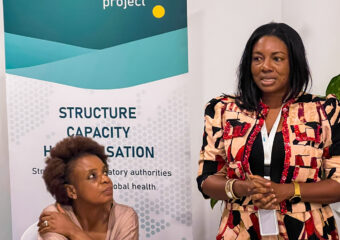M&E of a Novel IPC Training Concept
In evaluating the training program, we aim to investigate if participants developed the aspired skills and competences, and if the “PALS” practice approach and training concept is effective in promoting IPC quality development in health facilities.

PALS – the “Participatory Approach to Learning in Systems” is novel: based on a pilot project, the IPC practice approach and training concept were further developed by the NiCaDe IPC team and implemented for the first time in Nigeria 2019 – 2022.
In evaluating the training program, we aim to investigate if participants developed the aspired skills and competences, and if the “PALS” practice approach and training concept is effective in promoting IPC quality development in health facilities.
Although it is known that health care associated infections (HAI) are a problem in the context of complex health care systems related to issues of structure, governance, and human factors, most IPC training programs focus merely on the professionalization of individuals and concentrate on technical IPC knowledge and competences. “PALS” on the other hand considers the systemic and organizational dimension of IPC, and addresses IPC improvement as participatory quality development process that requires enabling skills, relational competences and process thinking.
To measure “increase of knowledge” after a training might be simple – but to determine the quality of the learning of participants regarding their possibilities to apply their new insights into routine working practice is more challenging. Furthermore, we aim to describe the quality of these change processes in complex and very diverse systems in order to generate practice-based evidence that demonstrates the usefulness of the “PALS” approach and training program.
Throughout the whole project period, data documenting the training development and training implementation, as well as the learning process of participants and the IPC improvement activities in health facilities was collected to inform the monitoring and evaluation of the project.
In September, the NiCaDe IPC team met in Berlin for a 2-week long data analysis workshop, the analysis continued thereafter via virtual collaboration. The team sought to understand how Change Agents implemented their ideas of PALS in their respective health facility practice. Participants ’ descriptions of their experiences during the training program, the way they applied the approach, their activities, and successes, which hindering and supporting factors they describe, etc. would reflect their perception and their practical understanding of the approach, thereby providing insights into context-related quality of the approach itself and of the training program.
Two qualitative studies by external researchers are planned to contribute additional evidence from an outside perspective.
Date: December 2022



